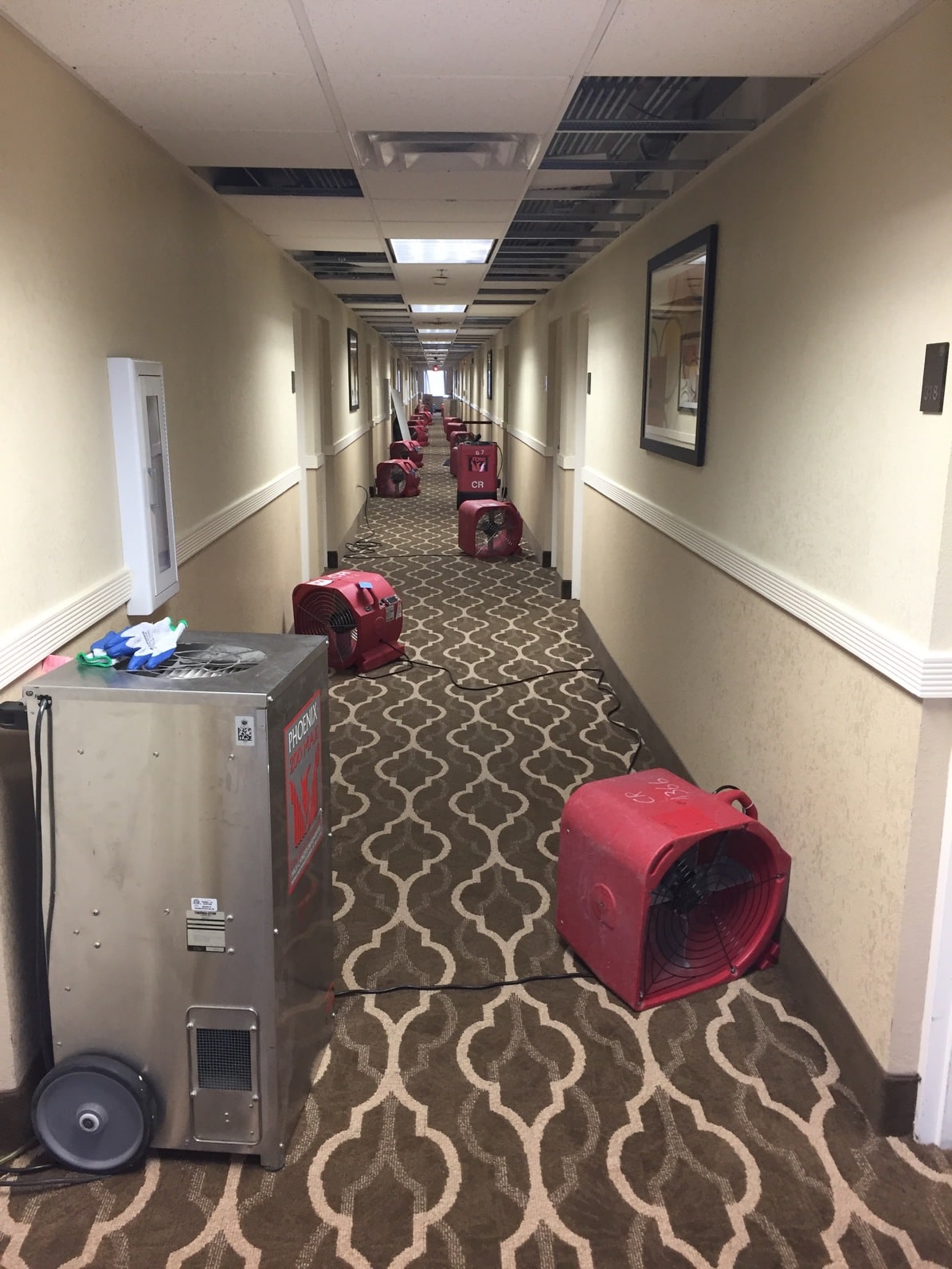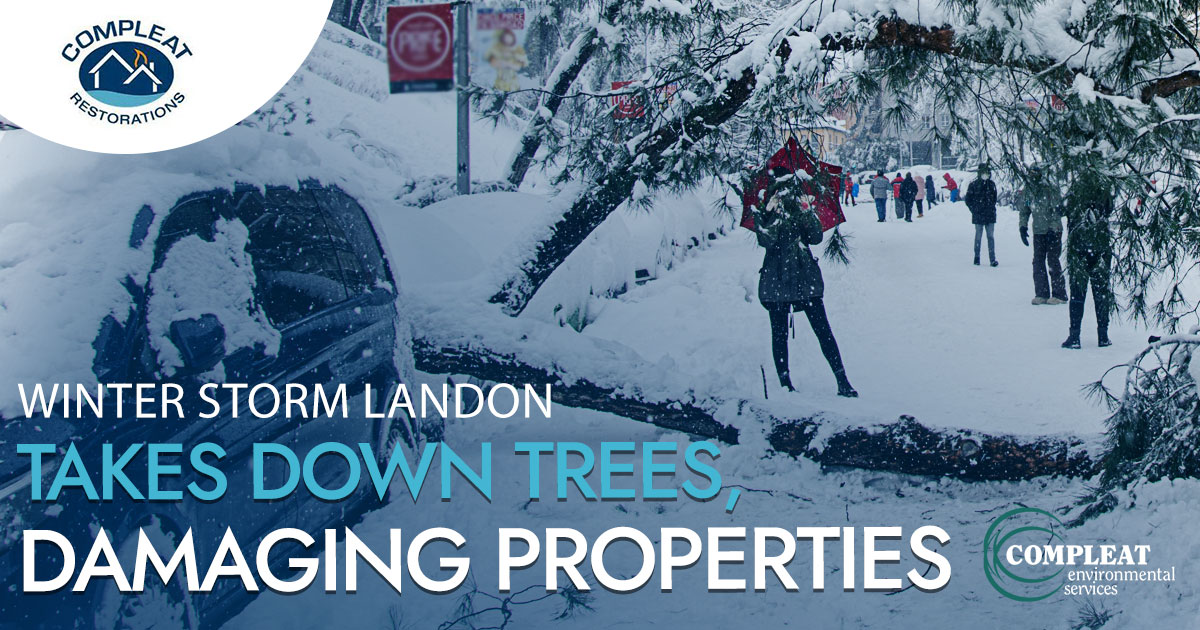If you live in Allentown, you might have noticed that mold seems more common than in other areas. There’s a reason for this, several, actually, and understanding them is the first step in protecting your family from mold growth in your home.
Our unique location and climate create perfect conditions for mold to thrive, but that doesn’t mean you have to live with it. Let’s explore why Allentown homes face these challenges and what you can do to prevent them.
Allentown’s Unique Mold Risk Factors
Our location in the Lehigh Valley creates specific climate conditions that can promote mold growth. The valley tends to trap moisture, leading to higher humidity than surrounding areas.
Allentown’s seasonal weather patterns, especially our humid summers and variable spring conditions, create ideal environments for mold development. When warm, moist air meets cooler surfaces in our homes, condensation occurs, and mold often follows where there’s persistent moisture.
Neighborhood housing throughout Allentown spans different eras, each featuring unique construction methods and materials. From pre-1900 Victorians to mid-century ranches and contemporary builds, our local architecture tells many stories. Homes constructed before 1950 typically lack modern vapor barriers and ventilation systems to prevent mold growth.
Historic districts showcase distinctive architectural styles with inherent vulnerabilities. Victorian-era structures (1880s-1910s), with their ornate wood trim and plaster walls, readily absorb moisture, while characteristic brick row homes contain porous mortar joints allowing water infiltration. Earlier dwellings built before 1940 typically incorporated lath and plaster walls alongside limestone foundations that naturally draw groundwater into living spaces.
Junction points between old and new materials in renovated properties create particularly challenging conditions. Without proper moisture barriers separating original elements from modern additions, these transition areas become prime spots for mold development, especially within partially remodeled basement spaces.
Urban development throughout the years can alter natural drainage patterns in many areas. These changes can redirect water flow toward existing homes, creating new challenges for moisture control.
Common Problem Areas in Allentown Homes
Basements are particularly vulnerable to mold in our area and are among our most common remediation sites. The synergistic combination of basement moisture, temperature differentials, and poor ventilation creates the ideal environment for mold development.
Broken sump pumps, faulty water heaters, and seasonal flood conditions can quickly create emergencies. When these incidents go unmitigated within 24-48 hours, mold can colonize drywall, carpeting, and contents.
Attics are also a frequent trouble area, especially in older homes. Inadequate ventilation traps damp air, leading to condensation on roof sheathing and insulation, a mold-growing environment.
Bathrooms and kitchens also need special attention. Local homes do not always have adequate ventilation, and exhaust fans venting into attics rather than outdoors worsen moisture problems.
Condensation in the windows is normal during extreme weather. Holding this water against window sashes with thick curtains or blinds is the perfect condition for mold growth.
Hidden sources of moisture, such as small leaks in plumbing or condensation in walls, are typically not seen until bigger problems occur. These issues are common in older Allentown homes with older pipes or poorly executed repairs.
Mold Prevention Strategies
Protecting your Allentown home from mold doesn’t have to be complicated. With the right approach, you can significantly reduce your risk of mold problems through these proven strategies:
- Modern moisture control solutions make a significant difference, even in older homes. Installing proper vapor barriers, upgrading insulation, and improving ventilation helps prevent mold growth.
- Dehumidification is crucial in Allentown homes. Consider installing whole-house dehumidifiers or using portable units in problem areas, particularly during humid summers.
- Proper ventilation in bathrooms and kitchens is essential. Ensure vent fans exhaust directly outside (not into attics) and run them longer than you think necessary. Experts recommend 30 minutes after showers or cooking.
- Regular maintenance is crucial for preventing mold growth. It includes checking for leaks, monitoring humidity levels, and promptly addressing water issues.
- Simple changes, such as using ceiling fans, circulating air, and maintaining consistent temperatures, can help reduce condensation and prevent mold.
While these prevention strategies work well for everyday moisture management, they’re not enough during water emergencies. In the event of flooding, pipe bursts, or significant leaks, professional equipment and immediate action are necessary to prevent mold growth.
Addressing water damage within 24-48 hours is critical for preventing a minor incident from becoming a major mold problem.
Professional Mold Remediation Solutions
At Compleat Restorations, we understand Allentown homeowners’ unique mold prevention and remediation challenges. Our 47 years of experience with local homes has given us deep insight into practical Allentown mold remediation solutions for our specific climate and housing styles.
Early detection is crucial for preventing extensive mold problems. We recommend regular inspections, particularly in areas prone to moisture accumulation.
If you suspect mold growth in your home, don’t wait to take action. Minor problems can quickly become significant issues, especially in Allentown’s climate.
A professional assessment can identify potential mold risks before they become visible problems. Our experts can evaluate your home’s specific vulnerabilities and recommend targeted solutions.
Contact us today to schedule a comprehensive mold inspection. Our team understands Allentown’s unique challenges and can help you develop an effective prevention strategy.
With the right approach to prevention and maintenance, you can protect your home and family from the risks of mold growth.


